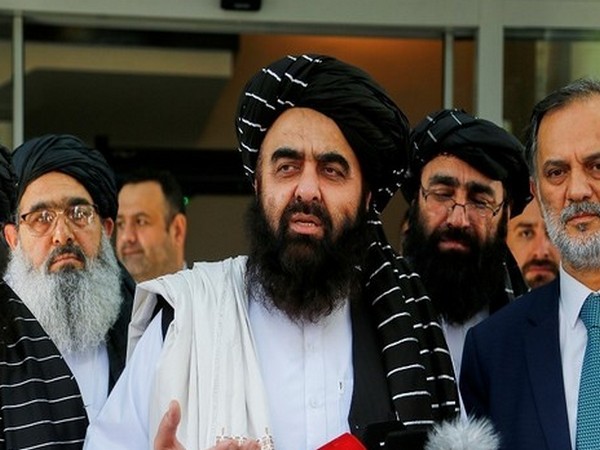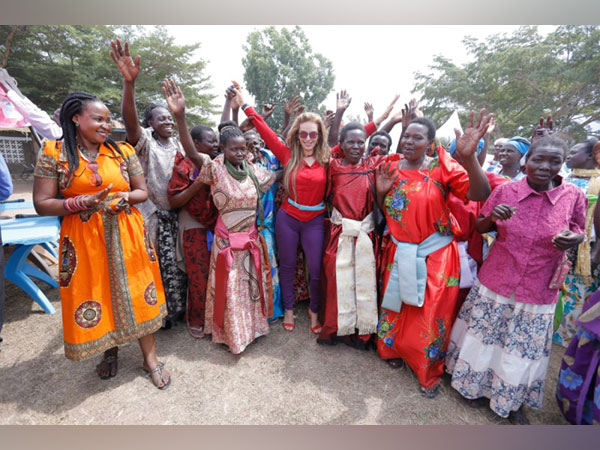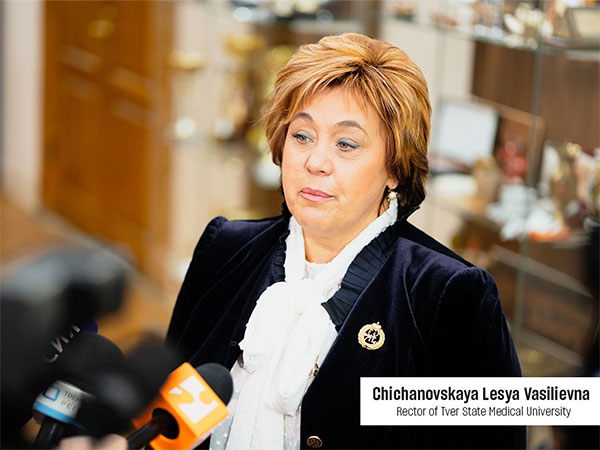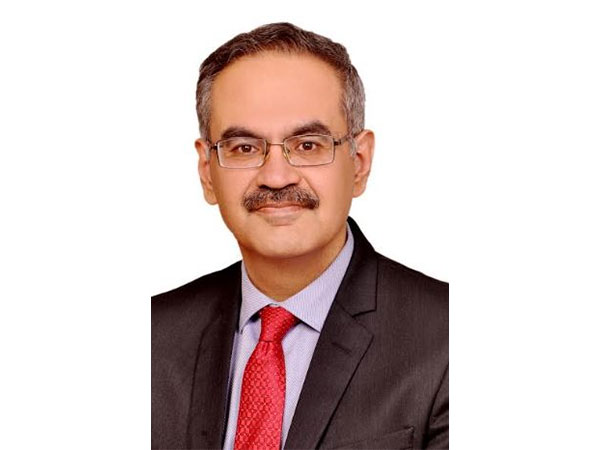Afghan foreign minister woos neighbors on rare visit abroad
May 07, 2023
Islamabad [Pakistan], May 7: The foreign minister of Afghanistan's Taleban government, which is not recognised by any other nation, held talks Saturday with his counterparts from Pakistan and China during a rare visit abroad. Amir Khan Muttaqi is barred by international sanctions from leaving Afghanistan but was granted an exemption for a trip to Islamabad just days after the United Nations secretary-general again condemned the Taleban government's curbs on women. China and Pakistan are Afghanistan's most important neighbors, with Beijing eyeing the vast untapped mineral resources that lie across their tiny shared border, and Islamabad wary of huge security risks along their much longer common frontier.
With the minister for commerce and industry in tow, the Afghan delegation is one of the most high-profile to travel abroad since the Taleban seized power in August 2021 following the withdrawal of US-led foreign forces and collapse of the Western-backed government.
"The biggest significance of this summit is that at this moment, as we understand it, no regional economic future is possible without the stability of Afghanistan," said Maria Sultan, director general of the South Asian Strategic Stability Institute.
"It is also important that a formal relationship should be established, and this is only possible if there is working reconstruction of the diplomatic track," she told AFP. The visit comes amid a flurry of diplomacy about-but not necessarily involving-Afghanistan's new rulers. 'Counter-productive' -Earlier this week, UN chief Antonio Guterres told a meeting of envoys from the United States, Russia, China and 20 other countries and organisations that "millions of women and girls are being silenced and erased from sight" in the country.
Taleban government officials were not invited, however, an omission a representative called "counter-productive". Also this week, a meeting in India of foreign ministers of the Shanghai Cooperation Organisation-of which Kabul has observer status-discussed Afghanistan without the presence of any representatives.
On Friday, the UN reaffirmed its "commitment to stay" in Afghanistan in a review in light of the Taleban government banning local women from working for the world body there. In a statement issued from Kabul, the United Nations' mission in Afghanistan reiterated its condemnation of the ban, which "seriously undermines our work, including our ability to reach all people in need". "We cannot disengage despite the challenges," it said. The Taleban government has firmly rejected criticism of the curbs on women, calling them an "internal social issue". Afghanistan is facing one of the world's worst humanitarian crises, international aid agencies say, with its 38 million population hungry and three million children at risk of malnutrition. Since returning to power, the Taleban authorities have imposed an austere version of sharia law that the UN has labelled "gender-based apartheid". Teenage girls are barred from secondary school, while women have been pushed out of many government jobs, prevented from travelling without a male relative and ordered to cover up outside the home, ideally with a burqa.
Chinese Foreign Minister Qin Gang, making his first visit to Pakistan since being appointed in December, will also hold bilateral talks with his Pakistani counterpart Bilawal Bhutto Zardari. China has been Pakistan's key defensive ally since the Cold War and also its most vital economic partner through loans and infrastructure projects totalling billions of dollars.
Meanwhile, the UN reaffirmed its "commitment to stay" in Afghanistan on Friday, in a review assessing its operations in the country in light of the Taleban banning women from working for the world body. The United Nations announced on April 4 that the Taleban had barred Afghan women from employment in UN offices countrywide, a prohibition that had previously only affected NGOs but spared the UN.
The UN mission in Afghanistan, UNAMA, subsequently launched the review, and concluded Friday that it was committed "to stay and deliver on behalf of the men, women and children of Afghanistan," Farhan Haq, a spokesman for the secretary-general, told reporters.
It also launched an appeal "to our donors to keep funding this assistance people need," he said. In a statement issued from Kabul, UNAMA reiterated its condemnation of the ban, which "seriously undermines our work, including our ability to reach all people in need." However "we cannot disengage despite the challenges," it said, noting that it had conducted "extensive consultations with multiple Afghan stakeholders, including civil society and women's groups, member states and donors."
"We continue our focused, principled and constructive engagement with all possible levels of the Taleban de facto authorities to obtain a reversal of this ban and ensure the safety of all UN and aid personnel," it said. UN entities on the ground in Afghanistan will "continue to discuss appropriate working modalities," Haq said, adding that "humanitarian operations continue to be undertaken." Since the ban, UNAMA has asked all of its Afghan staff, both men and women, to work from home, but other agencies in the country "have had different ways of handling the situation," he noted.
Since ousting a foreign-backed government in 2021, the Taleban authorities have imposed an austere version of sharia law that the United Nations has labelled "gender-based apartheid." - AFP
Source: Kuwait Times








